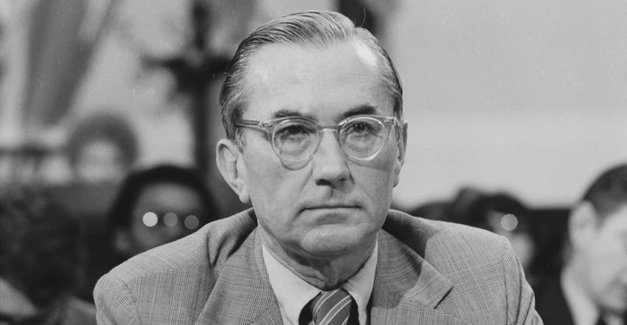The Spy Who Loved Me, by Scott Nye
Anyone who makes a documentary on a personal subject, such as their family, relationship, or life experience, has a tough job ahead of them. If the film is flatters its subject too much, it will feel like the filmmaker is viewing them through rose-tinted glasses. Too harsh, and they seem to have a lot of unresolved issues and pent-up bitterness. With The Man Nobody Knew: In Search of My Father, CIA Spymaster William Colby, Carl Colby sidesteps both by focusing on the facts, but in the process loses the inherent personal angle almost entirely.
I was not familiar with Colby prior to seeing the film, but it turns out he had a pretty big hand in shaping much of American international relations in the 20th century. Quickly recruited by the CIA following World War II, he worked to establish a democratic foothold in Italy following World War II. In 1959, he went to Saigon and and became President Kennedy’s point man there in the early 1960s. Much of his intelligence laid the groundwork for the Vietnam War, though many talking heads are quick to state that he did not support that particular course of action. He returned to Vietnam in 1968 and headed up the covert Phoenix Program, which came under fire following allegations of torture and assassination. President Nixon appointed him Executive Director of CIA in 1971, making him the fall guy in the aftermath of Watergate, especially once he started saying too much in Congressional hearings.
The film is much more detailed than that, but not terribly more nuanced. I suppose in one respect it lives up to its name by not getting into Colby’s character, but it feels more like they just never looked. There are thematic extrapolations that could have been made, like what his private secrecy says about the organization he represented, and how he was externally punished for honesty. There are some interesting, personal touches, like the younger Colby’s memory of going on a picnic in the middle of the Italian countryside, only for his father to find somebody he knew and hand off some documents. But it sort of stops there, functioning really as a fairly pat biography that anyone could have made. Colby’s is an interesting story, but especially following his years in Italy, it so closely follows a very familiar narrative of American history that it never quite distinguishes itself.
The younger Colby stumbles into a few interesting touches stylistically, but abandons them so quickly they feel more like happy accidents than motivated aesthetic choices. In one moment, he cuts between a man describing the toll the job took on William and a slow zoom in on a picture of him, which psychologically puts us in the mindset that if we look close enough, we can start to see something new and revelatory, but after two trips to the picture, he moves onto a different one. He also makes a fairly bland narrator, for what little of it there is, offering only incidental passion (his last line, which tries to go for a nice sentiment, falls way flat) and not much insight.
The Man Nobody Knew certainly lives up to its title, but unfortunately it feels all too often like a lack of effort or a willingness to overlook. There almost certainly has to be a more personal angle to the story, and on the face of it the thematic implications could be intriguing. That Colby went from a volunteer soldier in World War II to the fall guy after Watergate, mirroring the accepted patriotic arc, seems like it could have been capitalized on. Maybe that’s me searching for an interesting thematic angle where there is none, but the film offers none to replace it with. As a straight biography, it gets the job done, but is more like a visual Wikipedia entry than an insightful piece on an important figure.





























